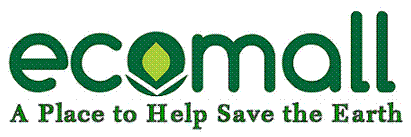

IS BOTTLED WATER BETTER?



IS BOTTLED WATER BETTER?

Bottled water manufacturers’ marketing campaigns capitalize on isolated instances of contaminated public drinking water supplies by encouraging the perception that their products are purer and safer than tap water. But the reality is that tap water is actually held to more stringent quality standards than bottled water, and some brands of bottled water are just tap water in disguise. What’s more, our increasing consumption of bottled water—more than 22 gallons per U.S. citizen in 2004 according to the Earth Policy Institute—fuels an unsustainable industry that takes a heavy toll on the environment.
Environmental Impact
Fossil fuel consumption. Approximately 1.5 million gallons of oil—enough to run 100,000 cars for a whole year—are used to make plastic water bottles, while transporting these bottles burns thousands more gallons of oil. In addition, the burning of oil and other fossil fuels (which are also used to generate the energy that powers the manufacturing process) emits global warming pollution into the atmosphere.
Water consumption. The growth in bottled water production has increased water extraction in areas near bottling plants, leading to water shortages that affect nearby consumers and farmers. In addition to the millions of gallons of water used in the plastic-making process, two gallons of water are wasted in the purification process for every gallon that goes into the bottles.
Waste. Only about 10 percent of water bottles are recycled, leaving the rest in landfills where it takes thousands of years for the plastic to decompose.
The Simple (and Cheaper) Solution
The next time you feel thirsty, forgo the bottle and turn to the tap. You’ll not only lower your environmental impact but also save money—bottled water can cost up to 10,000 times more per gallon than tap water. And because the U.S. Environmental Protection Agency’s standards for tap water are more stringent than the Food and Drug Administration’s standards for bottled water, you’ll be drinking water that is just as safe as, or safer than, bottled.
If, however, you don’t like the taste of your tap water or are unsure of its quality, you can buy a filter pitcher or install an inexpensive faucet filter to remove trace chemicals and bacteria. If you will be away from home, fill a reusable bottle from your tap and refill it along the way; travel bottles with built-in filters are also available. Finally, limit your bottled water purchases for those times when you’re traveling in countries where water quality is questionable.
Written by: Union of Concerned Scientists
RELATED LINKS:

| * * * IN-HOUSE RESOURCES * * * |
|---|